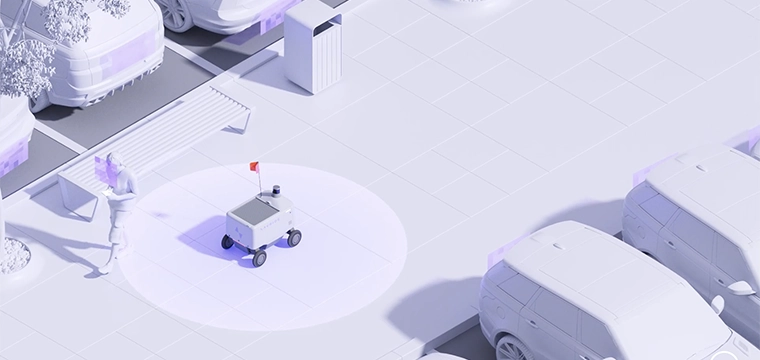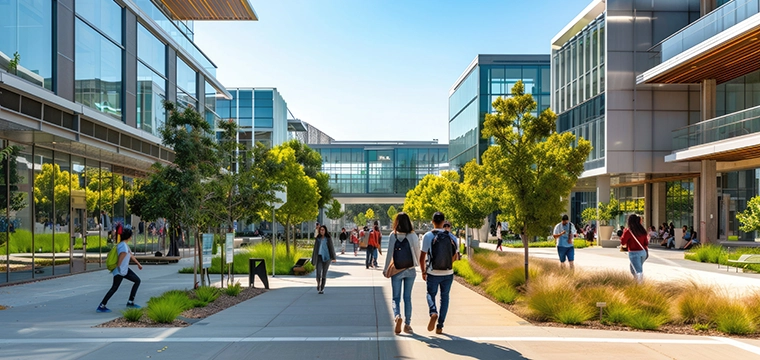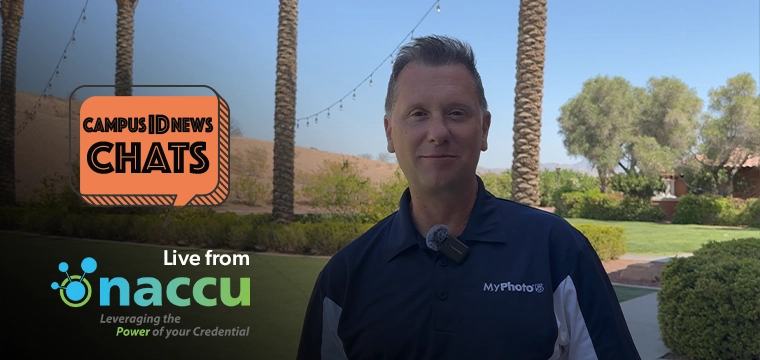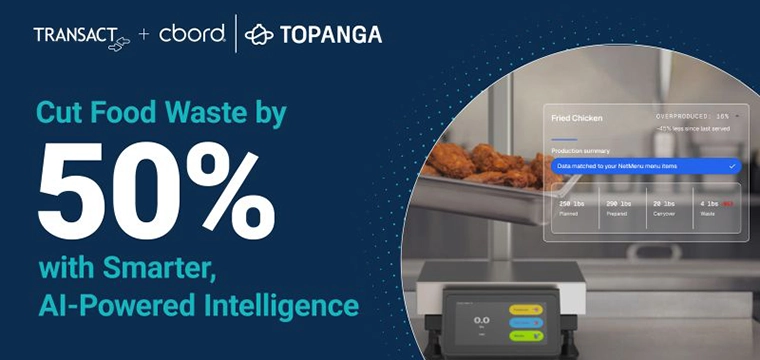
Driverless car software helps AVs travel safely through challenging terrain
A fleet of 105 autonomous food delivery “rovers” are making more than 1,000 deliveries daily via a partnership between Ohio State and Avride robots.
The university upgraded to the new autonomous rovers from Avride in early 2025, replacing the previous Cartken models that rolled out three years ago.
The new rovers are reducing delivery costs and increasing efficiency.
While traditional food delivery services can charge $4 to $15 in fees, OSU’s rovers offer a $2.50 flat fee per order.
While traditional food delivery services can charge $4 to $15 in fees, OSU’s rovers offer a $2.50 flat fee per order. Additionally, they reduce campus traffic congestion by exclusively using sidewalks, making deliveries safer and more predictable.
The rovers are integrated with Ohio State’s Grubhub ordering system so students can request robot delivery right from the app. Once an order is ready, dining staff loads it into the rover which autonomously navigates to its destination.
The service is available from 7 am to 10 pm daily.
At the end of the day, the robots return to a repurposed Barnes & Noble store on campus to recharge and receive any required maintenance.
At the end of the day, the robots return to a repurposed Barnes & Noble store on campus to recharge and receive any required maintenance. They have a 12-hour battery life, so in some cases a rover may need to return at another point during the day.
If there is not time for a recharge, however, staff doesn’t need to plug it in and wait. Instead, batteries can easily be easily swapped out for new ones in about 30 seconds.
The new rovers offer advanced autonomous navigation, recognizing traffic signals and estimating vehicle speeds. Each unit weighs 200 pounds and operates without human intervention.
They feature digital screens with animated "eyes" that blink and express emotions. OSU’s dining team adds messages such as “Go Buckeyes!” during football season.
According to an article in the Columbus Dispatch, they feature digital screens with animated "eyes" that blink and express emotions. OSU’s dining team has customized messages for special occasions – such as “Go Buckeyes!” during football season and heart-eyed expressions on Valentine’s Day. Staff occasionally include free beverages or handwritten notes, making the experience more enjoyable.
Avride, headquartered in Austin, is a developer of autonomous driving technology that specializes in both driverless cars and now delivery robots.
The company originated from the Yandex self-driving car project which began in 2017. At the start of the Ukrainian war, Yandex’s Russian ties brought international pressure on its Dutch parent company to divest of its Russian assets.
Lidars, cameras, and ultrasonic sensors enable them to safely travel at 5 miles per hour in challenging terrain.
The autonomous vehicle and robot efforts were spun out in 2024, and Avride became an independent AV start-up under the umbrella of the Dutch Nebius Group.
Even prior to Ohio State’s launch of the Cartken robots, the institution had planned to introduce Yandex robots, but the launch was halted.
Now the robots are back, utilizing software developed for the company’s autonomous cars. Lidars, cameras, and ultrasonic sensors enable them to safely travel at 5 miles per hour in challenging terrain.
The goal of the integration between the Grubhub ordering app and the Avride robots is to bring autonomous robot delivery to colleges across the country, says a Grubhub announcement.
“Avride’s robots are intelligent and reliable—even in challenging conditions like rain or snow,” says Grubhub. “They boast a spacious compartment that can handle anything from a quick snack between classes to an assortment of pizzas and drinks for a get together with friends.”
If the Ohio State rollout continues with its initial success, we could see these new rovers on other campuses soon.




